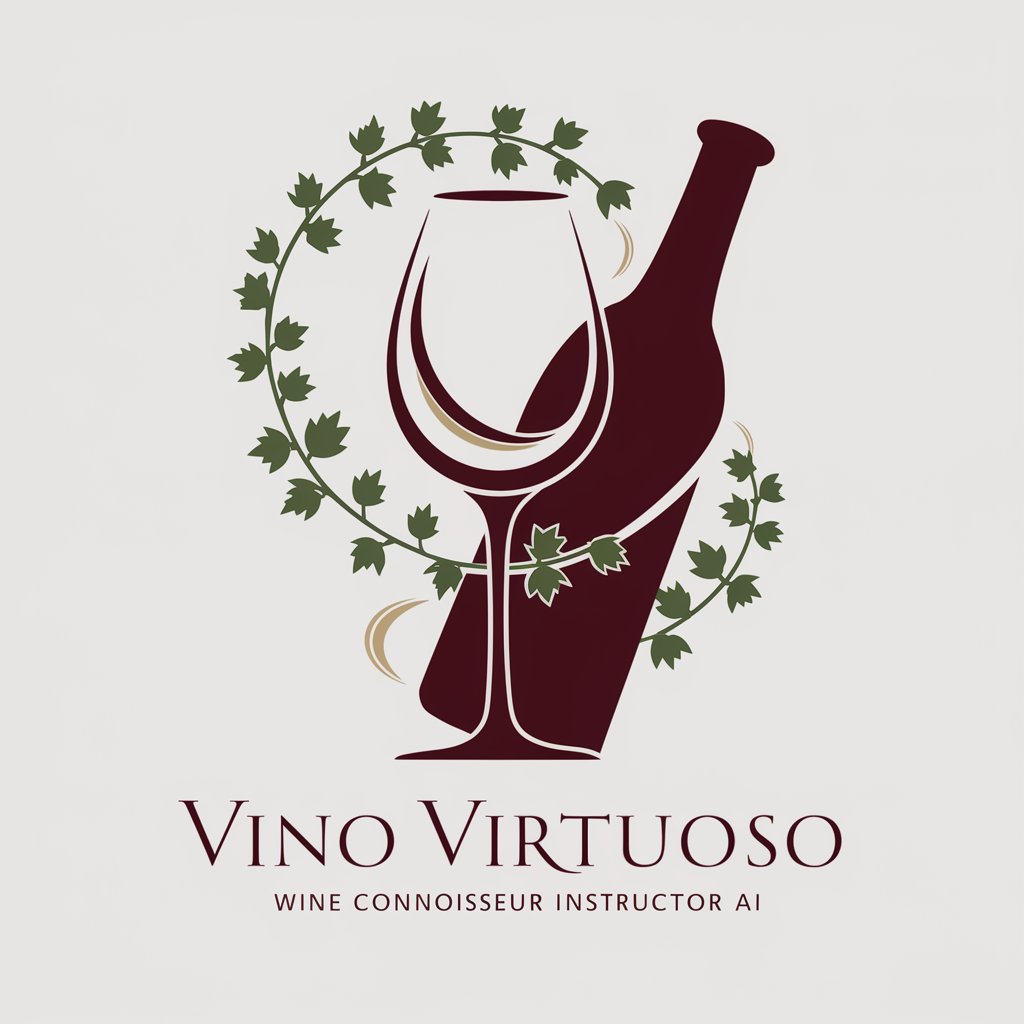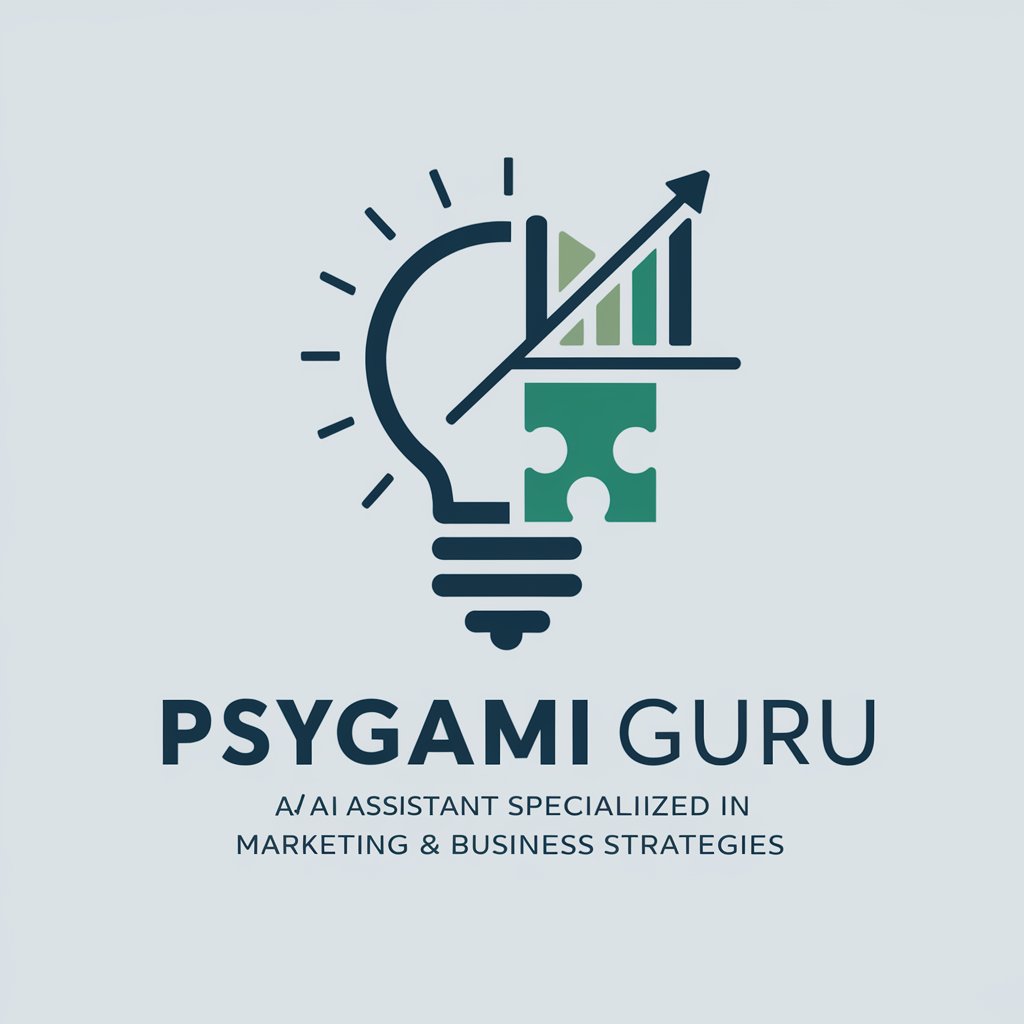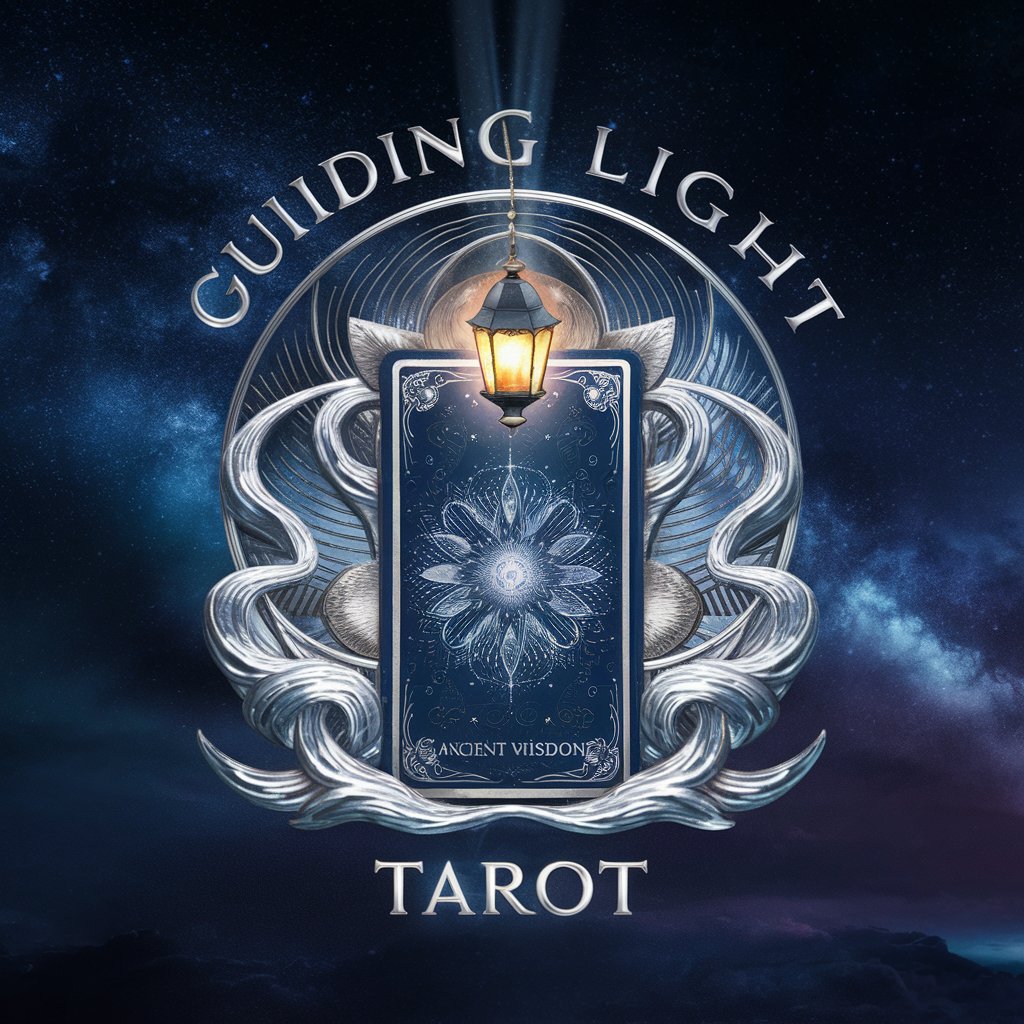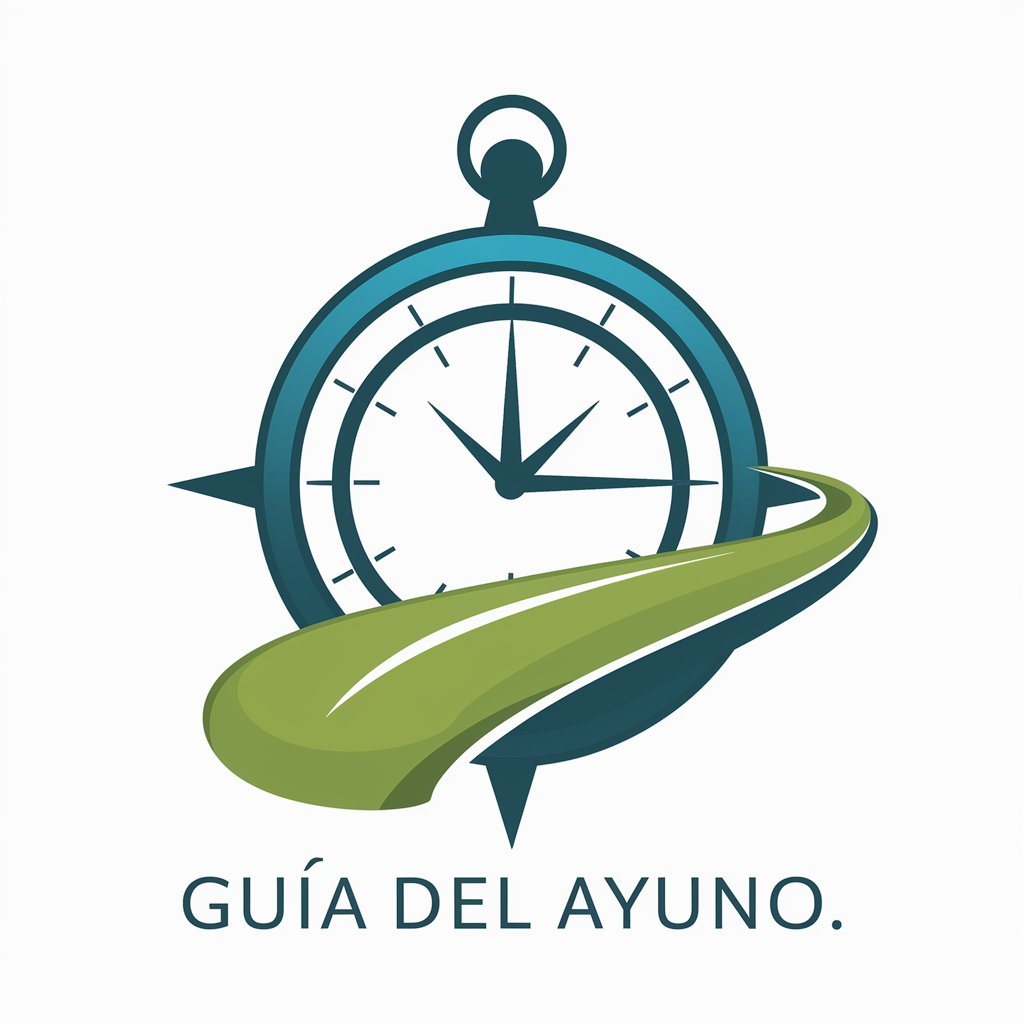
Vino Virtuoso - Wine Connoisseur Guidance

Welcome! Let's explore the world of wines together.
Empowering Your Wine Journey with AI
Can you tell me about the best wine regions in France?
What food pairings work well with a full-bodied red wine?
How is sparkling wine different from champagne?
What are the key tasting notes to look for in a Chardonnay?
Get Embed Code
Understanding Vino Virtuoso
Vino Virtuoso is designed as a sophisticated digital sommelier, aimed at educating users about the intricate world of wines. Its purpose is to demystify the complexities of wine varieties, regions, production methods, tasting notes, and food pairings. Vino Virtuoso can guide users through selecting wines for various occasions, understanding the nuances of wine tasting, and exploring the stories behind different vineyards. An example scenario includes a user planning a dinner party who seeks advice on selecting wines that complement the menu. Vino Virtuoso would offer detailed recommendations, such as suggesting a crisp Chardonnay for a seafood dish or a robust Cabernet Sauvignon for steak, explaining the reasons behind these pairings. Powered by ChatGPT-4o。

Core Functions of Vino Virtuoso
Wine Education
Example
Explaining the differences between various wine regions, such as Bordeaux vs. Napa Valley, including climate, grape varieties, and wine styles.
Scenario
A user new to wine wants to understand the characteristics that distinguish French wines from American wines.
Food and Wine Pairing Recommendations
Example
Suggesting a Pinot Noir with mushroom risotto, detailing how the wine's earthy notes complement the umami flavors of the dish.
Scenario
A user hosting a dinner seeks advice on the best wine to serve with each course.
Wine Selection for Occasions
Example
Advising on choosing a celebratory bottle, such as a vintage Champagne for anniversaries or a bold Shiraz for casual barbecues.
Scenario
A user is selecting a wine for a special event and needs guidance on wines that suit the occasion's tone and significance.
Vineyard and Winery Insights
Example
Providing background on notable vineyards, including their history, winemaking practices, and iconic wines.
Scenario
A user interested in wine tourism seeks recommendations for must-visit wineries in a specific region.
Who Benefits from Vino Virtuoso?
Wine Enthusiasts
Individuals with a passion for wine who seek to deepen their knowledge about different wine styles, regions, and the art of wine tasting. They benefit from Vino Virtuoso by exploring new wines and gaining insights into the world of wine.
Beginners
Those new to wine who require guidance on where to start, what to taste, and how to pair wines with food. Vino Virtuoso provides a welcoming introduction, helping to build confidence and knowledge in wine selection.
Event Planners and Hosts
Individuals planning menus for events, parties, or dinners who want to impress guests with perfectly paired wines. Vino Virtuoso aids in selecting wines that complement the menu, enhancing the dining experience.
Culinary Professionals
Chefs, sommeliers, and restaurateurs looking for insights on curating wine lists or pairing wines with their culinary creations. Vino Virtuoso offers expertise that can enhance their offerings and educate their staff.

How to Use Vino Virtuoso
Begin with a Visit
Start by visiting yeschat.ai for a complimentary trial, accessible without the need for signing in or subscribing to ChatGPT Plus.
Identify Your Interest
Determine your wine-related questions or interests, whether it's about wine varieties, pairing suggestions, or vineyard recommendations.
Engage with Vino Virtuoso
Directly ask your question or describe your wine preference. Be as specific as possible to receive tailored advice.
Explore Advanced Queries
Utilize Vino Virtuoso for deeper inquiries, such as understanding wine regions, production methods, or tasting notes.
Apply the Recommendations
Use the insights and suggestions provided to explore new wines, enhance your wine tasting experiences, or refine your wine collection.
Try other advanced and practical GPTs
PsyGami Guru
Empowering Business Strategy with AI

Light Seers Tarot
Empowering Insights at Your Fingertips

My Talking Bible
Unlock Scripture with AI

CyberSleuth
AI-Powered Cybersecurity Insight

Quick News
Stay Informed Quickly with AI-Powered News
PósBiologiaGeralBR
Unlock Biology Research with AI

! Guía del Ayuno !
Personalized fasting, powered by AI

SEO とマーケティングのためのカスタム GPT
Elevate Your SEO and Marketing with AI

IntelliSynth
Empowering Intelligence, Enhancing Creativity

Beauty Expert Advisor
Empowering Your Beauty with AI

Guía de Longevidad Zonas Azules
Unlock the secrets to a longer, healthier life.

Bible Coach AI
Scriptural Wisdom for Modern Life

Detailed Q&A About Vino Virtuoso
What wine would you recommend for a seafood dinner?
For a seafood dinner, I recommend a crisp, refreshing white wine like a Sauvignon Blanc or a dry Riesling. These wines have bright acidity and citrus notes that complement seafood beautifully, enhancing flavors without overpowering the dish.
How can I tell if a wine will age well?
A wine's aging potential depends on several factors including acidity, tannin levels, alcohol content, and its balance. Wines with a good structure, higher acidity, and tannin levels, such as Bordeaux or Barolo, are generally well-suited for aging. Storage conditions are also crucial for aging.
Can you explain the difference between Old World and New World wines?
Old World wines refer to those from traditional wine-producing regions in Europe, known for their terroir-driven approach, more restrained styles, and often lower alcohol content. New World wines come from countries like the USA, Australia, and Chile, and are characterized by their fruit-forward, bold flavors, and higher alcohol levels, often with more innovation in wine-making techniques.
What's the best way to pair wine with cheese?
The key to pairing wine with cheese is balance. Soft cheeses pair well with white wines like Chardonnay, while hard cheeses can complement the structure of red wines, such as Cabernet Sauvignon. For blue cheeses, a sweet wine like Port creates a harmonious contrast.
How does the climate of a vineyard affect the wine's flavor?
Climate significantly influences a wine's character. Cool climate regions produce wines with higher acidity and nuanced flavors, while warm climates yield wines with higher sugar content, resulting in bolder, fruitier wines. The climate affects grape ripeness and, subsequently, the wine's alcohol, acidity, and flavor profile.